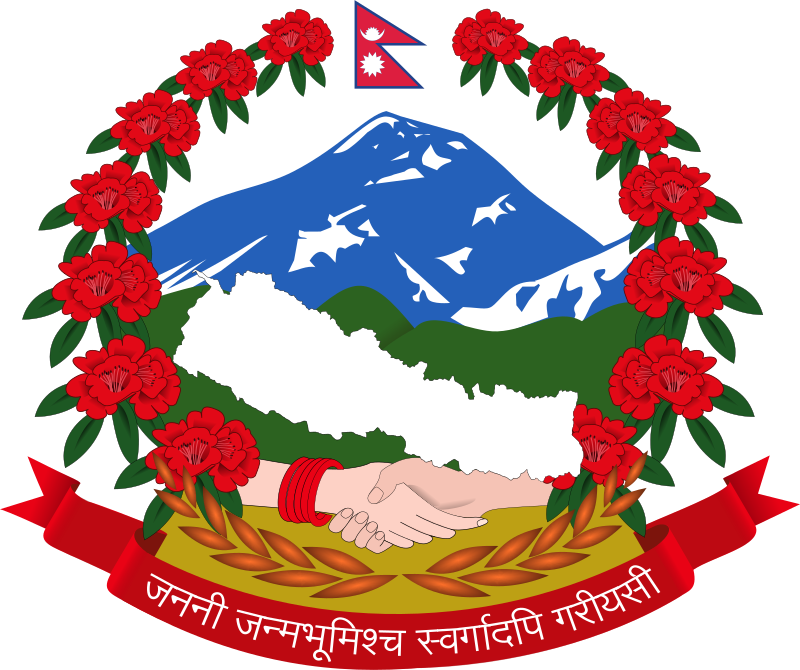Rt. Hon. Mr. Ramchandra Paudel is the third and current president of the Federal Democratic Republic of Nepal. He assumed office on 13 March 2023.
Personal Details:
Date of Birth: October 06, 1944
Mother: Hrishi Maya Paudel
Father: Durga Prasad Paudel
Place of Birth: Mirlung, Bahunpokhara, Presently Vyas Municipality–8 Risti, Tanahun District.
Permanent Address: Vyas-2 Damauli, Amarapuri
Current Residence: Rashtrapati Bhawan, Shital Niwas, Maharajgunj, Kathmandu.
Family’ Main Occupation: Agriculture
Spouse: Mrs. Sabita Paudel
Children- 5 (Four daughters and one son)
Education:
- Master in Arts (MA) from Tribhuvan University, 1970
- Bachelor in Sanskrit (Shastri), from Balmiki Vidyapeeth, Kathmandu, 1967
- Intermediate in Arts (IA): Saraswoti College, Kathmandu, 1966
- School Leaving Certificate (SLC) from Nandiratri Secondary School, Naxal, Kathmandu, 1963
Offices Held:
- President of the Federal Democratic Republic of Nepal since 13 March 2023.
- Speaker of House of Representatives (Lower House of Parliament) in 1994 and served until 1998.
- Deputy Prime Minister and Home Minister of Nepal from 1999 to 2002.
- Served as the Minister for Peace and Reconstruction from 2007-2008.
- Served as the Minister for Local Development & Agriculture from May 29, 1991 to 1994.
- Coordinator of the high-level Confidence and Peace Building Committee from 2006 to 2007, (The committee comprised of representatives from major political parties and its secretariat was located at the peace secretariat of the Government of Nepal, Singhadurbar, Kathmandu).
- Elected as the member of the House of Representatives (HR) for five terms- during the period from 1991 to 2022. He was also elected to the Constituent Assembly (CA) in 2008 from his home constituency in Tanahun district.
- Leader of Parliamentary Party Committee of the Nepali Congress 2007-2013
- Senior leader of the Nepali Congress till the date of his election as the President of Nepal
Political Profile:
As Student:
- He was inspired to join the struggle to restore democracy at the age of fifteen following his active participation in an agitation against the King’s coup d’état that not only unconstitutionally dissolved the first popularly elected parliament but also imprisoned the political leaders, including Prime Minister BP Koirala, on 15 December 1960.
- Founder Secretary of Himalayan Students’ Union.
- As the President of the Nepal Sanskrit Students Association, Pokhara, he participated in the Kathmandu Conference held in 1962.
- Founder President of Gandaki Chhatra Sangh-an umbrella Association of Students’ Union in Gandaki region in 1966
- Founder General Secretary of Democratic Socialist Youth League (DSYL),1967
- Founder President of Nandi Night Middle-School, Kathmandu.
- President of Ranipokhari Middle-School, Kathmandu.
- Played a lead role in establishing Nandiratri Mavi Vidyarthi Sangh and Ranipokhari Mavi Vidyarthi Sangh (both student’s union). He also mobilized students’ belonging to 22 different schools and launched a movement demanding an independent student union for the welfare of general students at Judhodaya High School in Kathmandu.
- Initiated Free Student Movement in 1962.
- Elected President of the Saraswati College Student Union in 1966.
- Elected as the General Secretary of the Democratic Socialist Youths League (DSYL) in 1967.
- Took momentous initiative in organizing Nepal Student Union 1970 and elected as a senior member of the committee of the Union.
- Founder Central Committee Member of Nepal Vidyarthi Sangh (Nepal Student’s Union) 1970
As Congress Leader:
- Central Acting President of Nepali Congress for an interim period, subsequent to the untimely demise of the party president Sushil Koirala, and held the 13th General Convention of the party in 2015.
- Central Vice-President of the Nepali Congress 2007-2015.
- General Secretary of the Central Committee of the Nepali Congress 2005-2007.
- Member of the Central Committee of the Nepali Congress and was accordingly bestowed the responsibility of the Chief of its Central Publicity Department in 1983.
- He, being in charge as Chairman of Political Publicity and Campaign Committee of the Tanahu district in favor of multi-party system, was responsible for making the multiparty side victorious in the national referendum held in 1980.
- Elected as the Vice-President of the Nepali Congress District Committee in 1979.
- Elected as the Nepali Congress Tanahu District Committee Member in 1977.
Incarceration and Detentions:
- Rt. Hon. Paudel served imprisonment for 14 long years- from 1961 to 2006, on different charges and on various occasions, in connection with the movements for the restoration of multiparty democracy. His incarceration was meted out under the King’s direct rule in Nepal.
Award/Honor conferred:
- Honored with various awards, including an award specifically conferred onto the human rights defenders.
- Received Mahendra Vikram Shah Award (Rs. 10,000). Mahendra Vikram Shah was the Founder of Nepal Prajatantra (Democratic) Congress and also a former minister.
- Honoured with Japan’s Imperial Decoration: “The Grand Cordon of the Order of the Rising Sun.” It was an accolade distinctively conferred on him by the Government of Japan in 2022.
Publications:
- A Brief History of Nepali Congress (नेपाली काँग्रेसको सङ्क्षिप्त इतिहास)
- Satyagraha: why and how (सत्याग्रह किन र कसरी ?)
- Democratic Socialism: A Study (प्रजातान्त्रिक समाजवाद एक अध्ययन)
- What does the Nepali Congress Say? (नेपाली काँग्रेस के भन्छ ?)
- Journey of Faith (Political Analysis) –आस्थाको यात्रा (राजनीतिक विश्लेषण)
- Agricultural Revolution and Socialism – कृषिक्रान्ति र समाजवाद
- The roadmap for the transformation of Nepali Congress नेपाली काँग्रेस रूपान्तरणको मार्ग
- There are dozens of essays and critical writings to his credit. They are published in Nepal’s national dailies, weeklies, monthly and online media portals on various topics ranging from democracy, democratic socialism, and role of political party for consolidating multi-party democratic system; to contemporary issues of Nepal. His poems and essays on “Life in Prison,” too were published.
***

